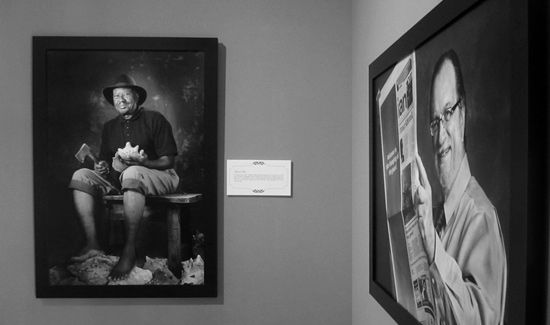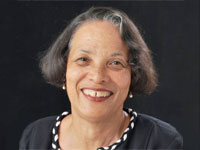 My last letter to the editor was in response to a junkanoo related item from the Budget Presentation which generated useful dialogue. This letter has also arisen from the Budget with respect to the Government’s allocation of funds to take the College of The Bahamas (COB) to University status. There has been a lot of talk about this initiative over the past several years, and the public has been subjected to bursts of information every now and then as the specially formed COB University Task Force carries out its mandate.
My last letter to the editor was in response to a junkanoo related item from the Budget Presentation which generated useful dialogue. This letter has also arisen from the Budget with respect to the Government’s allocation of funds to take the College of The Bahamas (COB) to University status. There has been a lot of talk about this initiative over the past several years, and the public has been subjected to bursts of information every now and then as the specially formed COB University Task Force carries out its mandate.
Although I might well be in the minority position on this issue, I would like to publicly state that I totally disagree with this initiative because, in a nutshell: 1. We do not need a University; and 2. We simply cannot afford it.
WHY? Why do we need to have a University of The Bahamas? Are we ashamed because we “just have a College”? There is no shame in realizing that we can’t afford a University. The reason we have so many financial problems now is because ‘we too big eye just for show’!
Why are we trying to reinvent the wheel? We are a small country – we do not need our own University when the University of the West Indies is right across the water, already established and respected (and if I am not mistaken, already significantly funded by the Bahamian Government). In addition, COB has already developed excellent relationships with respected universities all around the world who are providing accreditation through their programmes. Why not continue to develop these relationships and tailor them to our needs?
WHERE? Where is this university campus going to be located? The present site is certainly not suitable since a university needs a lot of space in itself as well as significant additional space for expansion.
HOW? A university requires an unending source of revenue and funding in order to operate and sustain itself. How will we pay for and administer the development of this type of institution with its huge infrastructure of buildings, equipment, supplies, furniture, labs, classrooms, libraries, housing, computers, electricity, water, maintenance, landscaping, cleaning and the list goes on and on. We cannot even keep COB running efficiently and effectively on its present inadequate budget (not to mention trying to register several thousand students every semester without long waits and all sorts of confusion!) so how will we create a university which requires a budget which is so much greater, many times over? Where is the logic in that?
Do we want to take on this government building project (like the new stadium, or the new courts, or the many other buildings around the country that on the one hand are poorly built at enormous expense and lots of opening fanfare, whilst on the other hand they have no proper contract management or maintenance plans so that they fall quickly into disrepair and money pours down the drain?) As an aside on this topic, I would like to make note of the deplorable state of the Portia Smith Building at COB, which is a disgrace. Her name should be removed. Have we no shame? How can we put the name of this academic hero (my former classmate) on such a ‘broke down’ building? This demonstrates a total lack of respect for her legacy!
WHO? Who is going to staff the university? Where will the money come from to pay the huge salaries needed in order to attract the highly qualified faculty members and administrative staff? Also, who is going to attend the University – will it cater to Bahamian students from all over The Bahamas, or is the plan to attract more foreign students, or both? If so, where are they going to be housed? Add dormitories to that list above…and don’t forget food and other ancillary services. What will be the fee scale for persons attending the university, since students are struggling now to meet the meager fee scales presently set at COB?
Looming over this topic of university status however, is the more pressing issue of the alarming state of public education in the country. Our educational system is in crisis. This is a serious problem which needs to be fixed first. Why are we concentrating on expanding tertiary education when the basic primary structure is broken, i.e. the baby jus’ born and can’t even sit up straight yet, more less creep, and we already got the hurdles set up in the yard – you have to learn to creep before you can leap! We are putting the cart before the horse if we are attempting to develop a university when the majority of our high school students leave school not being able to read, write and compute properly – isn’t something drastically wrong with that equation?
Instead of spending money on a University of The Bahamas – why not channel financial resources and planning into tackling the many deficiencies inherent in the country’s primary, junior and high school system? The entire country is suffering. As Patricia Glinton Meicholas so aptly states in her address at this year’s Dr Keva Bethel Lecture Series:
Above all, let us begin the change process in education at the
beginning—the primary level. Here is where the best of the best
should be assigned—the best and most caring administrators and
classroom practitioners…. Lessons must be rich in the challenge
of extrapolation, application, analysis, evaluation and creation of
new knowledge. Given the increasing disaffection of Bahamian youth,
it is as urgent to concentrate on the development of the affective
domain of learning, which targets awareness and growth in attitudes,
emotion, feelings, peaceful interaction with others and conflict
resolution.
To assist students presently in the school system, there needs to be significant investment in remedial teaching programmes in order to bring struggling students up to standard. Funds need to be allocated to train and hire these specialized teachers, and I dare say that we have enough students in the present system to dedicate an entire school to remedial training (in fact, I think COB offers remedial courses themselves).
In addition, the present COB educational degree curriculum should be reexamined so that teacher training is more stringent and specialized – we need many more properly trained teachers in english, mathematics and science. The educational system, indeed the whole country, needs to strive for excellence as its benchmark, not mediocrity.
In my day as a student:
- Teachers were one of the most highly respected professionals in the country;
- Teaching was an honourable, and one of the most important professions and they were paid accordingly;
- We might not have had fancy classrooms (in fact many lessons were taught under the shade of the school trees in the yard) but the teachers were highly trained and we learned our lessons;
- Education was a privilege that was not taken for granted – it was a way of improving your lot in life. If nothing else, you left school being able to read, write and do ‘rithmetic;
- If you misbehaved you ‘felt’ it – corporal punishment was meted out with regularity and without question;
- Parents were an integral part of the school community;
- Being able to afford and attend THE Government High School (whose last location was on the present COB campus) was a privilege. The school was established to provide education for those students who showed academic promise. Contrary to what some might think, GHS was not elitist, it was sensible – we need to bring this type of institution back.
I know that many younger people sigh when they hear their elders use the term “in my day” but we need to appreciate the valuable lessons from our past in order to lay the path of our future.
What contributed to the downward spiral of educational importance in the country? I think that economic concerns overshadowed educational ones when the impact of the tourism boom in the country’s post independence years ushered in employment opportunities that were based largely in the service industry where persons could make fast money as opposed to having to use their ‘book learning’ skills. Close on the heels of this boom came the scourge of the drug trade era which provided even faster money and an unprecedented quest for greater materialism. Sadly during this time, many students when asked what they wanted to be, stated without hesitation: “drug dealer” – and the importance of obtaining a solid education diminished (as Dr Offff bemoaned in the words of his popular Get Involved song “Don’ be no fool, stay in school!”)
In this 40th year of Independence we cannot ignore the natural results of progress – it is what it is. However, we do need to be cognizant of how and why the balance shifts. We must dig deep and search hard and fast to put our country back on a proper educational level. There is a lot of serious work to be done ‘in the first beginning’ and to my common sense way of thinking, trying to move COB to University status is not a priority!
Yours sincerely,
Pam Burnside



